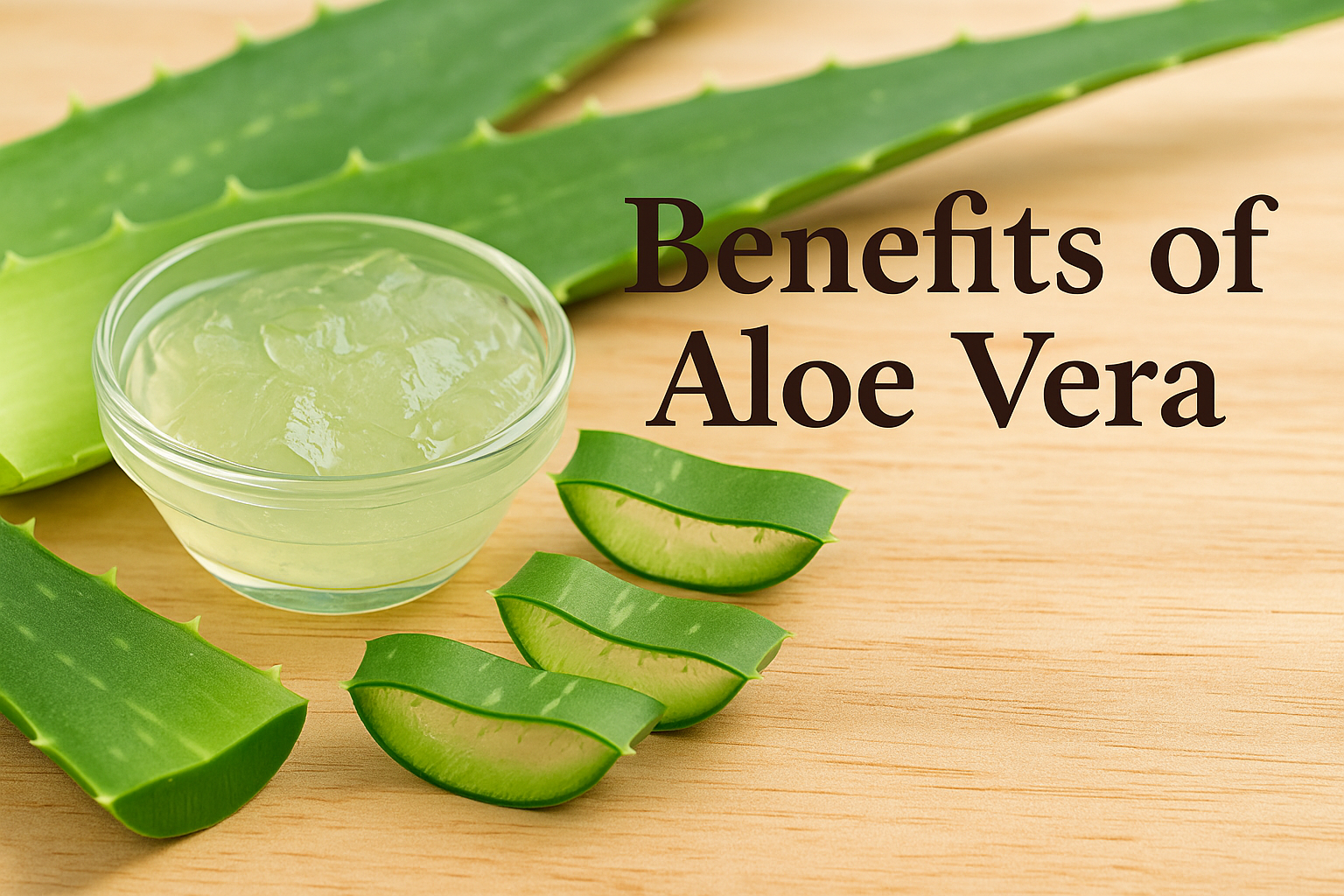For centuries, Aloe Vera has been used in traditional medicine across various cultures. Known for its thick, spiky leaves filled with a cooling gel, this humble plant is a powerhouse of nutrients and healing properties. From skincare to digestion, the benefits of Aloe Vera are truly impressive. If you're looking for natural remedies that work, keep reading to explore how this green gem can transform your wellness routine. 🌱
1. Soothes Skin Irritations and Sunburns ☀️🧴
One of the most popular uses of Aloe Vera is for treating sunburn. Its cooling and anti-inflammatory properties provide immediate relief and help the skin heal faster. It also works wonders on minor burns, rashes, and insect bites.
Thanks to compounds like aloin and glucomannan, Aloe Vera encourages skin regeneration and soothes itchiness, redness, and discomfort naturally.
2. Deeply Hydrates and Moisturizes Skin 💧🧖♀️
Aloe Vera gel is made up of 99% water, making it one of the best natural moisturizers. Unlike heavy creams, it absorbs quickly into the skin without leaving a greasy residue.
It’s ideal for people with oily or acne-prone skin and can be used daily to keep skin soft, supple, and glowing.
3. Fights Acne and Blemishes 🌼❌
Aloe Vera contains natural salicylic acid, which helps unclog pores and reduce breakouts. It also has antimicrobial properties that fight acne-causing bacteria.
Using Aloe Vera regularly can help fade acne scars and prevent future pimples, giving you a clearer complexion.
4. Promotes Healthy Hair Growth and Scalp Health 💇♂️🌱
Say goodbye to dandruff and itchy scalp. Aloe Vera balances scalp pH, removes dead skin cells, and nourishes hair follicles.
Its vitamins A, C, and E support healthy cell turnover and promote strong, shiny, and fast-growing hair.
5. Aids Digestion and Relieves Constipation 🍽️🧃
Aloe Vera juice can soothe the digestive tract and help treat issues like acid reflux and constipation. It acts as a natural laxative when consumed in moderation.
Drinking Aloe Vera juice on an empty stomach supports healthy digestion and nutrient absorption.
6. Boosts Immunity and Fights Inflammation 🛡️💪
Rich in antioxidants, Aloe Vera helps your body fight free radicals and reduce inflammation. It strengthens your immune system and may even help lower the risk of chronic illnesses.
Its anti-inflammatory nature also makes it a great remedy for joint pain and arthritis.
7. Helps Manage Blood Sugar Levels 🍬📉
Preliminary studies suggest that Aloe Vera may improve insulin sensitivity and lower blood sugar in people with type 2 diabetes. However, consult a healthcare provider before using it as a treatment.
Including Aloe Vera in your routine could complement other natural remedies like the Benefits of Green Tea, which also aids in balancing sugar levels.
8. Detoxifies the Body Naturally 🧃🌿
Aloe Vera juice acts as a gentle detoxifier, cleansing your digestive system and flushing out toxins. This contributes to better metabolism, healthier skin, and more energy.
9. Heals Wounds and Cuts Faster 🩹🌼
Aloe Vera stimulates collagen production, which helps close wounds and cuts quickly. It reduces scarring and protects against infections.
Applying fresh Aloe gel on minor wounds ensures faster healing with less pain.
10. Reduces Dark Circles and Puffiness 👁️🌙
Apply a bit of chilled Aloe Vera gel under your eyes before sleeping to reduce puffiness and dark circles. It cools and calms the skin while nourishing it with essential vitamins.
The result? A fresher and more awake appearance every morning.
11. Supports Oral Health and Fresh Breath 🦷🪥
Aloe Vera’s antimicrobial properties make it great for dental care. It can reduce plaque, heal mouth ulcers, and fight bad breath.
Using Aloe Vera mouthwash or simply swishing its juice can keep your mouth clean and healthy.
12. Improves Heart Health and Cholesterol 💓🫀
Aloe Vera may help lower bad cholesterol (LDL) and increase good cholesterol (HDL). Its anti-inflammatory effects also support overall cardiovascular health.
When taken with a balanced diet and exercise, Aloe Vera promotes a strong and steady heartbeat.
13. Delays Signs of Aging 👵🧴
Aloe Vera helps maintain skin elasticity, fades fine lines, and improves skin tone. Its vitamins and antioxidants neutralize free radicals that speed up aging.
Use it as a natural anti-aging serum or mix with essential oils for a DIY treatment.
14. Natural Makeup Remover and Cleanser 💄🫧
Aloe Vera is gentle enough to use as a natural makeup remover. It not only wipes away makeup but also hydrates and cleanses your skin.
Say goodbye to harsh chemical-based removers with this soothing alternative.
15. A Safe Remedy for Kids and Pets 🧒🐾
Aloe Vera is non-toxic and can be used for minor scrapes, rashes, and skin irritation in children and pets. It’s a must-have in your home first-aid kit.
Just make sure to use pure, organic Aloe gel free from additives or fragrances.
Final Thoughts: Embrace Aloe Vera for a Healthier Life 🌿💚
The benefits of Aloe Vera go far beyond skin care. It’s a complete wellness booster that supports health inside and out. Whether you're sipping the juice or applying the gel, Aloe Vera is a simple yet powerful addition to your lifestyle.
Let nature be your healer. 🌱 Start using Aloe Vera today and feel the difference — naturally and beautifully.

